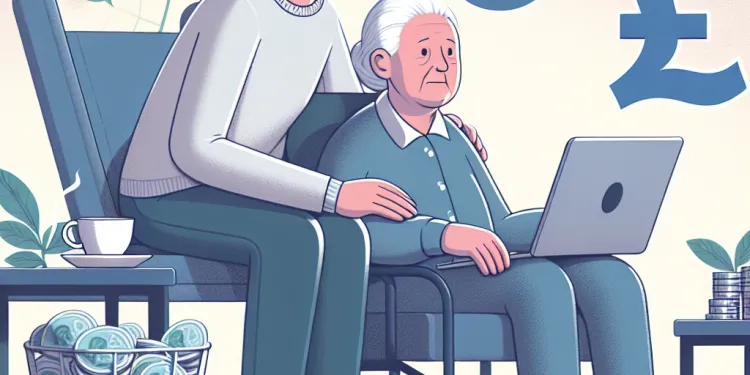
Find A Professional
More Items From Ergsy search
-
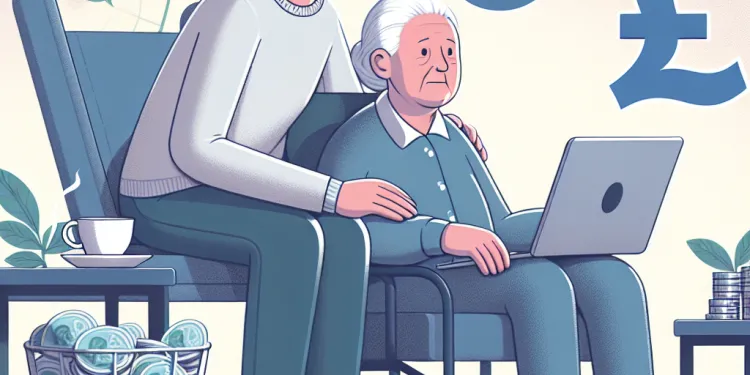
What role do carers play for those living with dementia?
Relevance: 100%
-

What is a dementia-friendly community?
Relevance: 75%
-

Are there any support groups for people with dementia in the UK?
Relevance: 67%
-

How does dementia progress over time?
Relevance: 61%
-

Can dementia affect younger people?
Relevance: 60%
-

Early onset dementia | NHS
Relevance: 57%
-

Is there a cure for dementia?
Relevance: 56%
-

Dementia by Dr Alex Kakoullis, Coventry and Warwickshire Partnership NHS Trust
Relevance: 56%
-

Living with dementia | NHS
Relevance: 51%
-

The role of care homes dedicated to caring for people living with dementia and memory loss
Relevance: 46%
-

Getting help and support with frontotemporal dementia (FTD) (part 2/3)
Relevance: 44%
-

How is dementia diagnosed?
Relevance: 42%
-

Dementia Care at Colten Care
Relevance: 36%
-

What is dementia?
Relevance: 34%
-

What financial support is available for people with dementia?
Relevance: 24%
-

What lifestyle changes can help someone with dementia?
Relevance: 23%
-

What are the common symptoms of dementia?
Relevance: 19%
-

How can I support a loved one with dementia?
Relevance: 18%
-

An introduction to frontotemporal dementia (FTD) (part 1/3)
Relevance: 16%
-

Living with changes in behaviour in frontotemporal dementia (FTD) (part 3/3)
Relevance: 15%
-
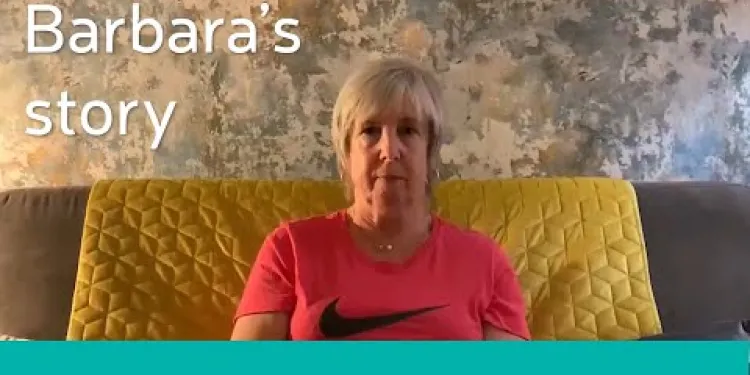
Bowel Cancer
Relevance: 15%
-
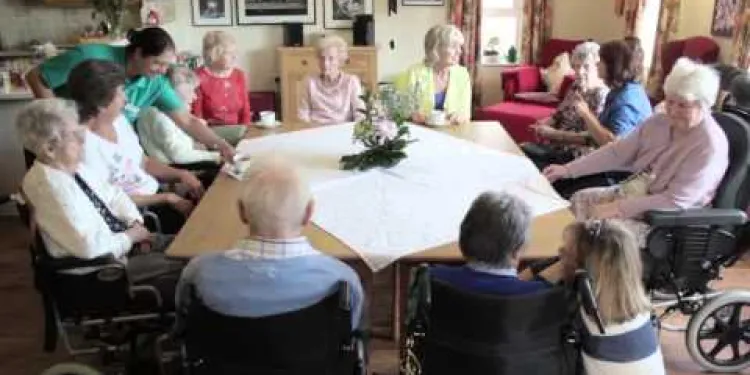
Fernhill Dedicated Dementia Care Home - a relatives perspective
Relevance: 14%
-

Pressure ulcer prevention: A guide for patients, carers and healthcare professionals
Relevance: 12%
-
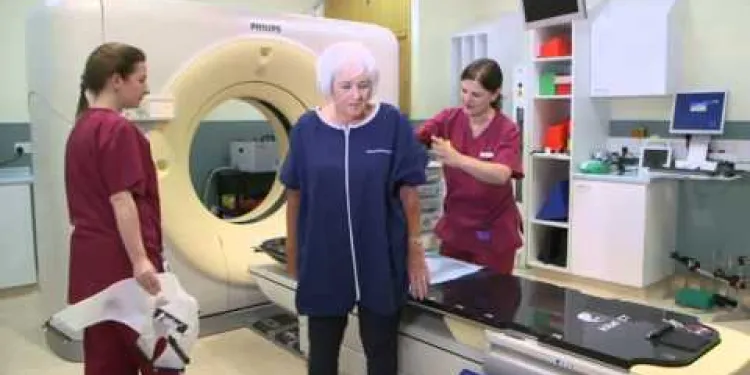
Radiotherapy to the Head and Neck: A Guide for patients and their carers
Relevance: 11%
-

How common is Alzheimer's disease in the UK?
Relevance: 7%
-

What is Delirium
Relevance: 7%
-
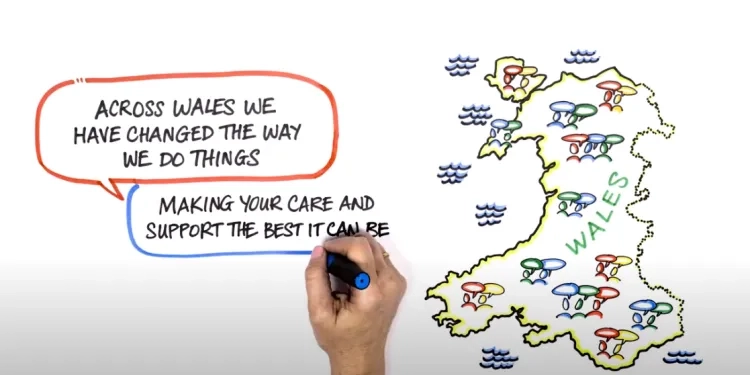
Social Services and Well-being (Wales) Act: Assessments
Relevance: 7%
-
What role do carers play for those living with dementia?
Relevance: 7%
-
What role do carers play for those living with dementia?
Relevance: 7%
-

The NHS Long Term Plan for learning disability and autism
Relevance: 7%
-

What support is available outside of school for SEND children?
Relevance: 6%
-

What is end of life care?
Relevance: 6%
-

What support is available for families of individuals with PIMD?
Relevance: 6%
-

How do you spot delirium
Relevance: 6%
-
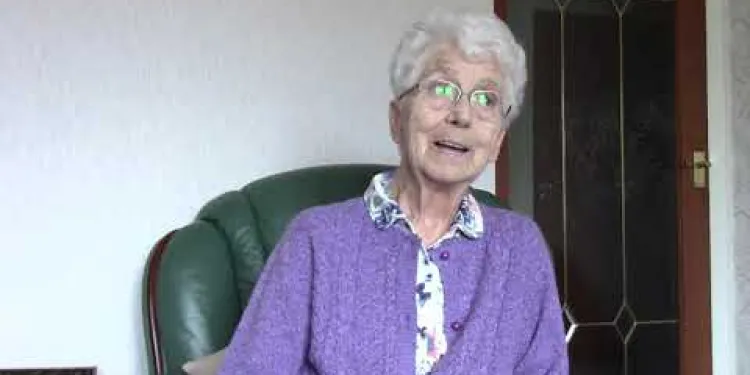
Delirium
Relevance: 6%
-

What is Alzheimer's disease?
Relevance: 5%
-

Is the flu vaccine free for everyone in the UK?
Relevance: 5%
-
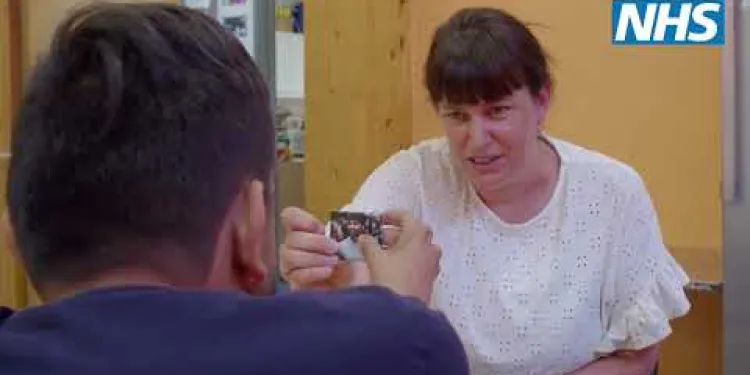
Use of reasonable adjustments to reduce health inequalities for people with a learning disability
Relevance: 5%
-

Are there NHS dentists available for patients with special needs?
Relevance: 4%
-
How does dementia progress over time?
Relevance: 4%
The Importance of Carers for Those with Dementia
Carers play a vital role in the lives of individuals living with dementia, providing essential support that addresses both daily needs and emotional well-being. In the UK, where more than 850,000 people are affected by dementia, carers are indispensable to the management of this challenging condition.
Daily Assistance and Routine Management
One of the primary roles of carers is to assist with daily tasks and manage routines. Individuals with dementia often struggle with activities such as dressing, bathing, and meal preparation. Carers help maintain a structured routine, which can reduce confusion and anxiety. This stability is crucial for those with dementia, as it provides a sense of familiarity and security.
Emotional and Social Support
In addition to physical assistance, carers provide important emotional and social support. Dementia can lead to feelings of isolation for those affected, as their ability to communicate and interact may diminish. Carers offer companionship and understanding, helping to combat loneliness. By engaging individuals in meaningful activities and encouraging social interaction, carers contribute significantly to their overall quality of life.
Monitoring Health and Managing Symptoms
Carers also play a critical role in monitoring the health of individuals with dementia. They are often the first to notice changes in behaviour or health that may require medical attention. Carers must manage medications, attend medical appointments, and communicate effectively with healthcare professionals. This oversight ensures that the individual’s health is closely managed and that any complications or changes in the condition are addressed promptly.
Support for Families and Friends
Beyond direct care, carers provide invaluable support to the families and friends of individuals with dementia. They offer guidance, build understanding, and provide peace of mind to relatives who might be overwhelmed by the demands of caregiving. Carers are often involved in educating families about the progression of dementia and advising on the best ways to support their loved ones.
The Economic Impact of Carers
In the UK, the economic contribution of unpaid carers is substantial. According to estimates, the value of the care provided by unpaid carers far exceeds that of formal care services. This highlights the critical economic and social role carers play in the dementia care landscape.
Conclusion
Overall, carers are central to the well-being and quality of life of individuals living with dementia. Their contributions encompass daily care, health monitoring, and emotional support, making them indispensable allies in the management of dementia. As the population ages and the prevalence of dementia increases, the role of carers will become even more crucial in ensuring the dignity and quality of life for those affected.
Why Carers Are Important for People with Dementia
Carers are people who help look after others. They are very important for people with dementia. Dementia affects how people think and remember things. In the UK, over 850,000 people have dementia. Carers help make sure these people get the care they need every day.
Helping with Daily Tasks
Carers help people with dementia do daily tasks. These can be things like getting dressed, taking baths, and making food. Having a daily routine helps people with dementia feel calm and safe.
Being a Friend
Carers also help by being a friend. People with dementia can feel lonely because it is hard for them to talk and join in activities. Carers keep them company and do fun things together to make them feel happy.
Watching Health and Symptoms
Carers watch the health of people with dementia. They notice if there are changes that need a doctor. Carers help with medicines and doctor visits. This keeps the person healthy and safe.
Helping Families and Friends
Carers not only help the person with dementia. They also support the family and friends. They give advice and help families understand how to support their loved ones. This makes families feel less worried.
Saving Money for the UK
Carers help save money for everyone. The help they give is worth more than paid care services. This shows how important carers really are.
Conclusion
Carers are very important for people with dementia. They help with daily needs, health, and give friendship. As more people get dementia, carers will become even more important.
Frequently Asked Questions
What are the primary responsibilities of a carer for someone with dementia?
Carers for individuals with dementia often oversee daily living activities, ensure the safety and well-being of the person, provide emotional support, and manage healthcare and medication needs.
How can carers help manage the symptoms of dementia?
Carers can help manage symptoms by maintaining a routine, providing cognitive stimulation, assisting with memory aids, and creating a calm and supportive environment.
What skills are essential for carers working with dementia patients?
Important skills include patience, empathy, effective communication, problem-solving, and the ability to manage stress.
How can carers support the independence of a person with dementia?
Carers can encourage independence by assisting with decision-making, allowing the person to perform tasks they can still manage, and promoting participation in activities they enjoy.
What role do carers play in ensuring the safety of those with dementia?
Carers ensure safety by preventing falls, securing a safe environment, monitoring for medication side effects, and being vigilant about potential hazards related to wandering.
How do carers assist with communication challenges in dementia?
Carers use clear, simple language, maintain eye contact, and employ other strategies such as visual aids and affirmation to facilitate understanding.
What emotional support do carers provide to individuals with dementia?
Carers offer companionship, reassurance, and comfort, helping reduce anxiety and enhancing the person's emotional well-being.
How do carers help manage healthcare needs for someone with dementia?
Carers coordinate medical appointments, track medications, and liaison with healthcare professionals to ensure comprehensive care.
Why is it important for carers to maintain routines for people with dementia?
Routines provide structure and familiarity, reducing confusion and anxiety for individuals with dementia.
What kind of training can benefit carers of dementia patients?
Training in dementia care techniques, first aid, stress management, and communication skills can enhance a carer's effectiveness.
How do carers help manage behavioral changes in dementia patients?
Carers manage behavior changes by staying calm, redirecting attention, identifying triggers, and using behavioral interventions.
What is the role of carers in providing personal care for dementia patients?
Carers assist with personal hygiene, dressing, feeding, and other daily living activities while respecting the person's dignity and preferences.
How do carers balance their responsibilities and self-care when caring for someone with dementia?
Carers can manage responsibilities by seeking support from respite services, setting realistic goals, and making time for their self-care to prevent burnout.
What resources are available to support carers of people with dementia?
Resources include support groups, educational workshops, helplines, and respite care services.
How can carers help families of dementia patients cope with the diagnosis?
Carers can provide information, support emotional discussions, and help develop care plans that involve family members.
How do carers monitor and track the progression of dementia symptoms?
Carers keep detailed records of changes in behavior, cognitive abilities, and daily functioning to share with healthcare providers.
Why is communication important between carers and healthcare professionals?
Effective communication ensures coordinated care, accurate information sharing, and adjustments to care plans based on changing needs.
What advice can carers give to families dealing with dementia?
Carers advise families to stay informed about the condition, engage in open communication, and participate in support networks.
How can technology assist carers in looking after someone with dementia?
Technology can provide tools such as medication reminders, GPS trackers for safety, and apps for cognitive engagement.
What is the impact of a dementia diagnosis on the carer's role?
A dementia diagnosis can increase responsibilities, necessitate more intensive care, and impact the carer's personal life and emotional well-being.
What does a carer do for someone with dementia?
A carer helps look after a person with dementia. Here are some things a carer does:
- Help with daily tasks: Like eating, bathing, and dressing.
- Keep them safe: Make sure they are safe at home and when going out.
- Give medicine: Help them take their medicine on time.
- Listen and talk: Spend time talking and listening to them.
- Plan activities: Do fun things together that the person enjoys.
- Stay organized: Keep track of doctor's appointments and important papers.
Using reminders like notes or phone alarms can help carers and the person with dementia. Talking to a doctor or support group is also helpful.
People who take care of someone with dementia have important jobs. They help with things like getting dressed, eating, and washing. They make sure the person is safe and feels okay. They also give hugs and talk to them. They give medicine too.
How can carers help with signs of dementia?
Carers can use simple ways to help someone with dementia feel better.
Here are some tips:
- Keep a daily routine. This means doing things at the same time each day.
- Use pictures and signs. They can help people understand what to do.
- Talk slowly and use simple words. Make sure they understand.
- Listen to them and be patient. Give them time to say what they want.
- Encourage them to do things they enjoy, like music or games.
- Use a calendar or a clock to help them remember the time and day.
Special tools like reminder apps can also help. These tools can set alarms for taking medicine or doing activities.
People who take care of others can help in these ways:
- Keep a regular schedule each day.
- Do fun puzzles or games that make you think.
- Use tools to help remember things, like notes or pictures.
- Make sure the place is quiet and kind.
What skills do carers need to help people with dementia?
Carers who help people with dementia need to have certain skills. Here are some important ones:
- Patience: It is important to stay calm and give the person time.
- Good listening: Listen carefully to understand what the person needs.
- Kindness: Be gentle and nice in your words and actions.
- Communication: Use simple words and clear sentences. Use pictures if needed.
- Problem-solving: Find easy ways to help when there is a problem.
- Empathy: Try to understand how the person feels.
Using tools like picture cards can help with communication. Writing things down can also be helpful. Taking breaks and asking for help is important for carers too.
Here are important skills:
- **Patience**: Staying calm and waiting without getting upset.
- **Empathy**: Understanding how other people feel.
- **Effective Communication**: Talking and listening well so everyone understands.
- **Problem-Solving**: Finding answers to problems.
- **Managing Stress**: Staying calm even when things are hard.
To help with these skills, try using pictures, taking breaks, and talking to someone you trust.
How can carers help someone with dementia be more independent?
Carers can help by letting them do things on their own, but are there to help if needed. Keep things simple and clear for them.
Use pictures and labels to show where things are. Make a daily routine to help them remember what to do.
Be patient and kind. Give them time to do things at their own speed.
Use tools like reminders or notes to help them remember important things.
Carers can help people do things on their own. They can help by letting the person make choices, doing tasks they can still do, and joining fun activities together.
How do carers help keep people with dementia safe?
Carers help people who have dementia.
Dementia makes it hard for these people to remember things. It can also make them confused.
Here are some things carers do to help:
- Carers make sure people eat and drink.
- They remind people to take their medicine.
- Carers help people move around safely.
- They keep the home safe by moving dangerous things.
Carers can also use special tools to help.
For example, they might use alarms to tell if someone is leaving the house.
Apps or devices can help remind people to do things.
Carers do all these things to keep people with dementia safe and happy.
Carers keep people safe in these ways:
- They stop people from falling down.
- They make sure the place is safe.
- They check if medicine causes any bad reactions.
- They watch out for things that might be dangerous if someone walks away.
To make understanding easier, you could:
- Use pictures to show these actions.
- Ask someone to read with you.
- Use simple words.
- Take breaks if it feels too much.
How do helpers support talking problems in people with dementia?
People with dementia may find talking hard. Helpers can make talking easier. Here are some ways they help:
- Use simple words and short sentences.
- Speak slowly and clearly.
- Be patient and give the person time to reply.
- Use pictures or drawings to help explain.
- Point to things when talking about them.
- Use gestures, like hand signals.
- Keep eye contact to show you are listening.
Helpers can also learn special ways to talk. They can ask other experts for tips.
Carers talk in a clear and simple way. They look at you when they talk, and they use pictures and say nice things to help you understand.
How do carers help people with dementia feel better?
Carers help people with dementia in many ways. They make sure the person feels loved and safe. Carers listen and talk to them. They help keep their minds active by playing games or doing activities together. Carers also help them stay calm and happy by being there when they are upset.
To help understand better, you can use pictures or videos about dementia. Talking with a friend or family member can also help.
Carers are people who help others feel safe and happy. They keep people company and make them feel better. This helps people worry less and feel good inside.
How do carers help with health care for someone with dementia?
Carers look after people with dementia. They help them with health care.
Carers make sure the person sees a doctor and takes medicine. They help with eating healthy food and staying active. They also watch for changes in health.
Carers can use tools to remember tasks, like notes or charts. They can ask doctors or nurses for help. Family and friends can also support the carer.
Carers help look after people. They make sure you see the doctor and take your medicine. Carers also talk to doctors and nurses to keep everything on track.
Why is it good for carers to keep routines for people with dementia?
People with dementia might forget things. Routines help them know what is happening every day. This can make them feel safe and happy.
Carers can use pictures or big calendars to show what will happen in the day. This helps everyone keep track of routines.
Doing things the same way every day helps people with dementia feel safe and less worried.
How can carers help people with dementia?
What can carers learn to make it easier to help people who have dementia?
Some things carers can learn are:
- How to talk to someone who has dementia.
- Ways to help when the person feels upset.
- How to make the home safe.
It is good to ask for help when you need it. There are tools and apps that can help, like reminders or books with pictures.
Learning about how to take care of people with dementia, how to do first aid, how to manage stress, and how to talk and listen well can help carers do their jobs better.
Here are some ways to help you learn:
- You can watch videos online.
- You can go to classes.
- You can use apps that teach you.
How do carers help with changes in behavior for people with dementia?
People who care for someone with dementia help when their behavior changes. Dementia can make people act differently, so carers use certain ways to make things better.
Here are some ways carers can help:
- Be Patient: Carers take time to listen and understand. This helps calm the person with dementia.
- Stay Calm: Carers speak in a gentle voice and stay calm. This makes the person feel safe.
- Set a Routine: Doing things at the same time each day helps the person know what to expect.
- Give Simple Choices: Carers ask easy questions, like "Do you want tea or juice?"
- Use Pictures: Showing pictures or using objects can help the person understand better.
Using these tools and tips makes it easier for both the carer and the person with dementia. It helps everyone feel good and safe.
Carers can handle changes in behavior by staying calm, helping the person focus on something else, finding out what causes the behavior, and using special methods to help.
What Do Carers Do to Help People with Dementia?
Carers help people who have dementia. Dementia can make it hard for people to remember things or look after themselves.
Carers do important jobs like:
- Helping with washing, dressing, and going to the toilet.
- Giving them food and drinks.
- Making sure they take their medicine.
- Talking with them and helping them feel happy and safe.
If you want to learn more or need help, you can:
- Talk to a doctor.
- Get help from support groups.
- Read easy books about dementia.
Carers help people with things like washing, getting dressed, eating, and other everyday tasks. They make sure to do this in a way that respects the person and what they like.
How do carers look after themselves while taking care of someone with dementia?
Carers need to take care of someone with dementia and also take care of themselves. Here is how they can do it:
- Make a routine: Carers can set a plan for each day. This helps them know what to do and when.
- Ask for help: It's important to ask family or friends to help sometimes.
- Take breaks: Carers should have some time to relax. They can read a book, take a walk, or watch a show.
- Talk to others: Joining a support group can help carers share their feelings with people who understand.
- Stay active: Exercise can make carers feel better. Even a short walk can help.
- Use reminder tools: Tools like calendars or alarms can help carers remember important things.
By doing these things, carers can take care of themselves while caring for someone with dementia.
Carers can get help by using respite services, setting goals they can reach, and taking time to care for themselves to stop feeling too tired.
What help is there for people who care for someone with dementia?
If you look after someone who has dementia, there are things and people that can help you.
Here are some helpful things you can try:
- Groups for carers: You can join groups where you meet other people who care for someone with dementia.
- Talking to someone: You can talk to a counselor or someone who understands your feelings.
- Books and websites: There are books and websites that have lots of information. They can make caring easier.
- Rest breaks: It is important to take breaks. You can ask someone to help you for a little while so you can rest.
- Ask for help: If you need help, ask friends, family, or carers' support services.
These are some ways you can get support and take care of yourself while you care for someone with dementia.
Here are some places that can help you:
- Support groups: These are meetings where you can talk to others and get help.
- Educational workshops: These are classes where you can learn new things.
- Helplines: You can call these phone numbers to talk to someone who can help.
- Respite care services: These are places where you can take a break and someone else will help you for a while.
How can carers help families of people with dementia?
Dementia can be hard for families. Carers can help in many ways:
- Talk to the family. Show them you care and listen to them.
- Explain what dementia is. Use simple words to help them understand.
- Share useful tips. Give ideas on how to care for their loved one.
- Encourage taking breaks. Tell them it's okay to rest and care for themselves.
- Suggest support groups. This can help families talk to others who understand.
Carers can make a big difference by being kind and helpful.
Carers can give you information. They can talk to you about your feelings. They can help make care plans with your family.
How can carers keep an eye on dementia symptoms?
Carers can watch how dementia changes. They can write notes every day. They can talk to doctors. They can use apps to help remember things. Pictures can help too. Talking to other carers can be good.
Carers write down changes in how a person acts, thinks, and does daily things. They share this information with doctors and nurses.
Why is talking important between carers and healthcare workers?
Talking helps everyone do a better job. Carers and healthcare workers both want the best for the person they are caring for.
When they talk to each other, they can share important information about what the person needs or how they are feeling. This can help make sure the person gets the right care.
They can also solve problems together. If something isn't going well, they can talk about it and find a way to make it better.
Good talking helps everyone work as a team.
Good talking helps people work together to give care. It makes sure that everyone has the right information and can make changes if needed.
How can carers help families with someone who has dementia?
Dementia is when a person's brain does not work as it used to. This can make them forget things and get confused.
If you have a family member with dementia, carers can offer good advice:
- Stay calm: People with dementia need calm and quiet. Speak to them gently.
- Make a routine: Doing the same things every day can help them feel safe.
- Use pictures: Pictures can help people remember things better than words.
- Be patient: It can take them longer to understand. Give them time.
- Ask for help: There are groups and people who can help you. Don't be afraid to ask.
Helpers tell families to learn about the health problem, talk openly with each other, and join groups that offer help.
How can technology help people who take care of someone with dementia?
Technology can be a big helper for people who care for someone with dementia. Here are some ways it can help:
- Reminder Apps: These apps can help remind the person with dementia about important things, like taking medicine.
- GPS Trackers: These devices can help carers know where the person with dementia is, to keep them safe.
- Video Calls: Carers can use phones or tablets to video call and stay in touch, even if they are not nearby.
- Safety Sensors: These sensors can alert carers if something is wrong, like if a person falls.
Using these tools can make caring for someone with dementia a bit easier. It's also a good idea to ask for help or training on how to use these tools.
Technology can help in many ways. It can remind you to take your medicine. It can use GPS to keep you safe. There are also apps that help you think and learn.
How does finding out someone has dementia change what a carer does?
If a doctor says someone has dementia, the person helping them (the carer) might need to do more things. Here are some things that might change:
- Understand what's happening to the person with dementia.
- Help with daily tasks like eating and dressing.
- Make sure the person is safe at home.
- Go to doctor visits with them.
- Be patient and calm, even if things are hard.
Carers can use some tools to make their job easier:
- Memory aids: Use notes and reminders to help remember things.
- Support groups: Talk to others who care for people with dementia.
- Rest breaks: Take time to rest and relax to stay healthy.
When someone is told they have dementia, it means others need to help them a lot more. The person taking care of them will have more work to do, which can be tiring and also change how they feel. It might make their own life harder too.
Useful Links
- Ergsy carfully checks the information in the videos we provide here.
- Videos shown by Youtube after a video has completed, have NOT been reviewed by ERGSY.
- To view, click the arrow in centre of video.
- Most of the videos you find here will have subtitles and/or closed captions available.
- You may need to turn these on, and choose your preferred language.
- Go to the video you'd like to watch.
- If closed captions (CC) are available, settings will be visible on the bottom right of the video player.
- To turn on Captions, click settings .
- To turn off Captions, click settings again.
More Items From Ergsy search
-

What role do carers play for those living with dementia?
Relevance: 100%
-

What is a dementia-friendly community?
Relevance: 75%
-

Are there any support groups for people with dementia in the UK?
Relevance: 67%
-

How does dementia progress over time?
Relevance: 61%
-

Can dementia affect younger people?
Relevance: 60%
-

Early onset dementia | NHS
Relevance: 57%
-

Is there a cure for dementia?
Relevance: 56%
-

Dementia by Dr Alex Kakoullis, Coventry and Warwickshire Partnership NHS Trust
Relevance: 56%
-

Living with dementia | NHS
Relevance: 51%
-

The role of care homes dedicated to caring for people living with dementia and memory loss
Relevance: 46%
-

Getting help and support with frontotemporal dementia (FTD) (part 2/3)
Relevance: 44%
-

How is dementia diagnosed?
Relevance: 42%
-

Dementia Care at Colten Care
Relevance: 36%
-

What is dementia?
Relevance: 34%
-

What financial support is available for people with dementia?
Relevance: 24%
-

What lifestyle changes can help someone with dementia?
Relevance: 23%
-

What are the common symptoms of dementia?
Relevance: 19%
-

How can I support a loved one with dementia?
Relevance: 18%
-

An introduction to frontotemporal dementia (FTD) (part 1/3)
Relevance: 16%
-

Living with changes in behaviour in frontotemporal dementia (FTD) (part 3/3)
Relevance: 15%
-

Bowel Cancer
Relevance: 15%
-

Fernhill Dedicated Dementia Care Home - a relatives perspective
Relevance: 14%
-

Pressure ulcer prevention: A guide for patients, carers and healthcare professionals
Relevance: 12%
-

Radiotherapy to the Head and Neck: A Guide for patients and their carers
Relevance: 11%
-

How common is Alzheimer's disease in the UK?
Relevance: 7%
-

What is Delirium
Relevance: 7%
-

Social Services and Well-being (Wales) Act: Assessments
Relevance: 7%
-
What role do carers play for those living with dementia?
Relevance: 7%
-
What role do carers play for those living with dementia?
Relevance: 7%
-

The NHS Long Term Plan for learning disability and autism
Relevance: 7%
-

What support is available outside of school for SEND children?
Relevance: 6%
-

What is end of life care?
Relevance: 6%
-

What support is available for families of individuals with PIMD?
Relevance: 6%
-

How do you spot delirium
Relevance: 6%
-

Delirium
Relevance: 6%
-

What is Alzheimer's disease?
Relevance: 5%
-

Is the flu vaccine free for everyone in the UK?
Relevance: 5%
-

Use of reasonable adjustments to reduce health inequalities for people with a learning disability
Relevance: 5%
-

Are there NHS dentists available for patients with special needs?
Relevance: 4%
-
How does dementia progress over time?
Relevance: 4%